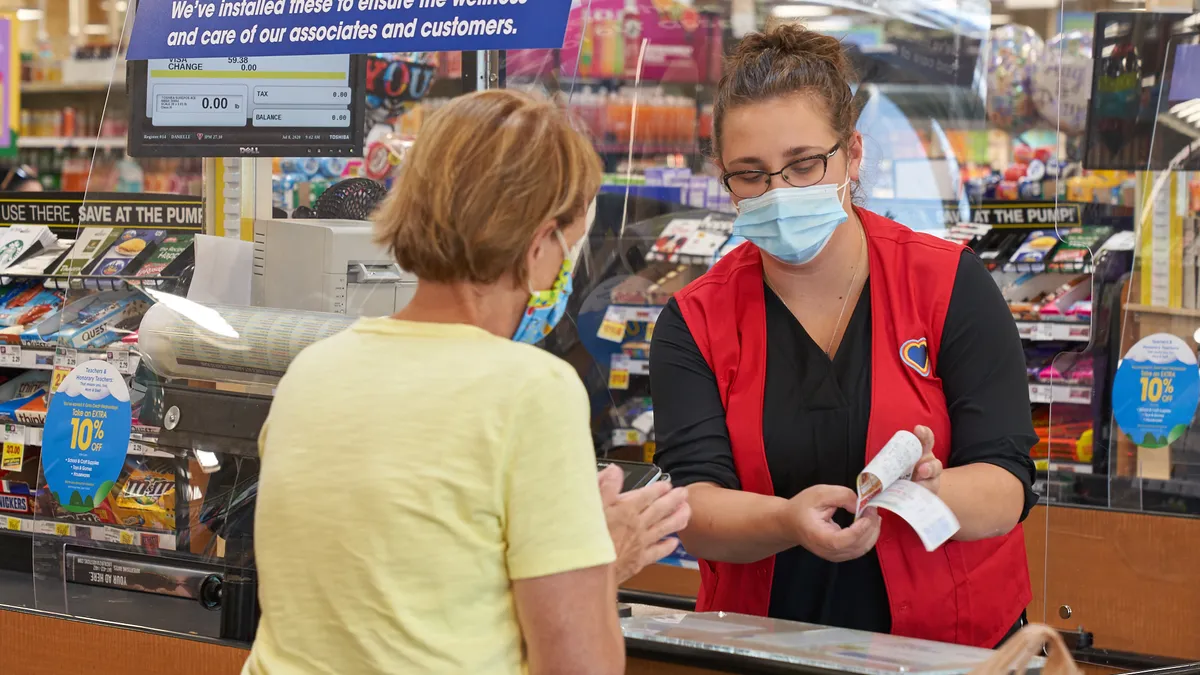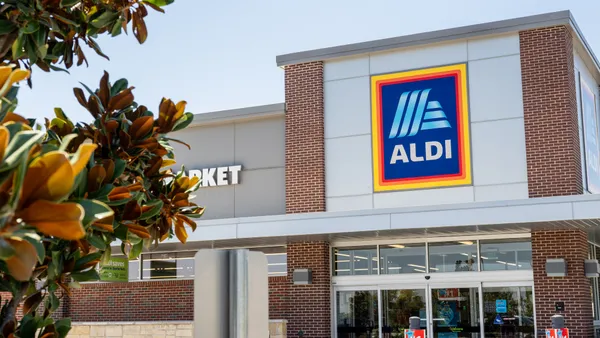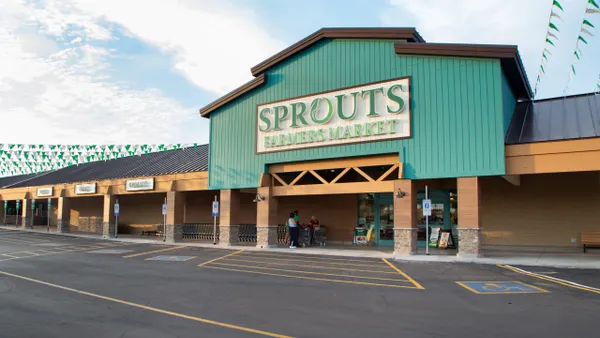Dive Brief:
- Kroger announced Wednesday that it will require all shoppers to wear face masks in its stores beginning next Wednesday. The announcement comes the same day Walmart said it will require shoppers to wear masks at all of its more than 5,000 U.S. stores starting next Monday.
- In a statement, Kroger said it is taking this step now because “we recognize additional precautions are needed to protect our country.” The grocer said small children are exempt from the directive, and that shoppers who can’t wear masks should consider a face shield or other alternative face covering. Those who can’t wear a face covering are encouraged to use the company’s e-commerce services, including no-fee pickup.
- "As an employer, grocery provider and community partner, we have a responsibility to help keep our associates, customers and communities safe,” the company’s statement read. “According to the CDC, wearing a facial covering, combined with social distancing and frequent handwashing, has been scientifically proven to reduce the spread of COVID-19.”
Dive Insight:
The two largest grocery providers in the U.S. will now require shoppers inside all of their stores to wear masks, joining a growing chorus of retailers and restaurants that includes Best Buy, Kohl’s, Starbucks and Costco.
Other companies will likely follow in quick succession, and that promises to impact the national conversation on mask wearing in the U.S., which health experts say is imperative to stemming the spread of the coronavirus, but which has also become an increasingly politicized action. On Tuesday the U.S. recorded more than 65,000 cases of COVID-19, the disease caused by the novel coronavirus, and health officials warn the spread of the virus could accelerate during the upcoming fall and winter seasons.
Like Walmart, Kroger has been dealing with mask-enforcement policies in states like Michigan and California that require people to wear face masks in grocery stores and other public spaces. The company will be able to draw upon what it’s learned from its stores in those areas and achieve more consistency as it issues policy directives across its more than 2,800 stores and 17 banners.
Kroger did not outline how it will enforce the new policy at its stores, though it did recommend its e-commerce services to shoppers who are unable to wear masks — and by extension, those who are unwilling to. Kroger offers delivery from more than 2,400 stores and pickup from roughly 2,000 locations. The company’s pickup service, which normally requires a $5 fee, has been free since March. In April, Kroger began accepting payment from Supplemental Nutrition Assistance Program customers at all of its pickup locations.
Walmart said Wednesday it will place new “health ambassadors” at its store entrances beginning Monday to remind shoppers of its mask requirement. The company said the majority of its customers in areas that require masks inside stores have been compliant, but news reports and social media have also documented numerous incidents of shoppers refusing to cooperate with directives.
Store employees and customers are wary about having to confront customers who refuse to wear masks. In an interview with Grocery Dive, Marissa Baker, an assistant professor of environmental and occupational health sciences at the University of Washington, said she doesn’t support grocers utilizing store employees who don’t have special training to handle these situations.
"I really don't like the idea of having to position someone who's usually a checker or a [stocker] by the door to make sure people are complying with masks. That's really tricky,” she said. “Those workers are not trained to be doing that and it puts them in a very vulnerable position.”
Kroger, which has seen its sales skyrocket during the pandemic, has taken an active roll in distributing COVID-19 tests to its employees and consumers, including at drive-thru locations. Earlier this month, the company received emergency authorization from the FDA to distribute home collection kits. By the end of the month, Kroger Health and laboratory partner Gravity Diagnostics plan to process up to 60,000 tests per week.
Krishna Thakker contributed reporting to this story.










